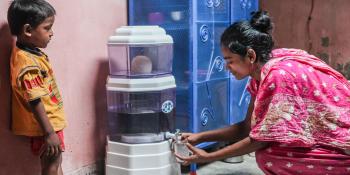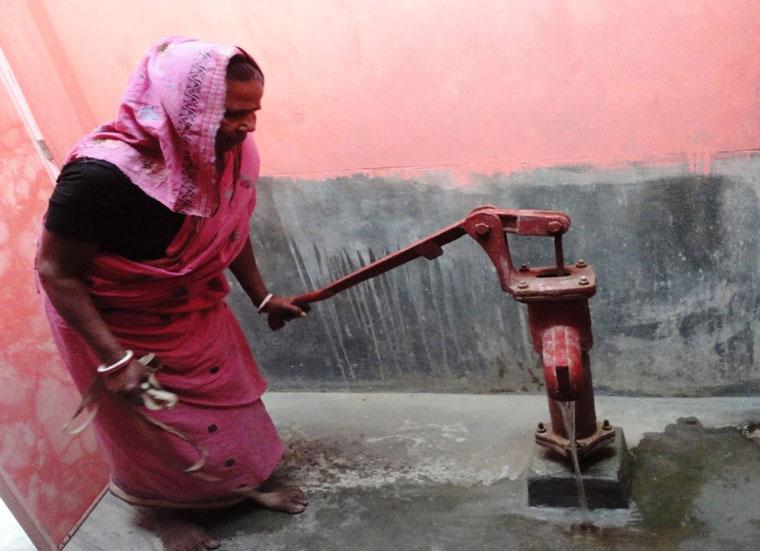
Why is clean water important?
By Mohamed Obaidul Sikder, Habitat for Humanity Bangladesh project coordinator
In Bangladesh, we have a proverb about water: “The other name for water is life.” It resonates with me when I work in distant rural areas, where clean water is rare.
On this World Water Day, I’d like to tell you about one of my projects in the small village of Rishipara in Satkhira in southern Bangladesh. About 150 families live here. It’s crowded. The community is only a half square kilometer in size (or about 125 acres).
When I first arrived, the villagers lacked enough wells for everyone to have safe drinking water. They often had to fetch water from other remote communities. Latrines were unsanitary, leaving families more vulnerable to disease. Bathing took place outside their homes, and there was no safe place for women and girls to change clothes.
Habitat Bangladesh’s focus on water and sanitation meant building three new deep-tube wells, each with a raised base and safe water collection points. We also constructed a lockable bath house to provide privacy for women and girls. A community committee on water, sanitation and hygiene was formed, and members were trained on management and finances.
Working with families, we also built 107 sanitary latrines housed in brick sub-structures with raised bases in order to keep the flooring above flood level. Each latrine included a rainwater harvesting and reservoir system for handwashing. And 300 adults and 150 children got comprehensive training on water, sanitation and hygiene.
All of Rishipara’s people, from children to the elderly, now live healthier lives. Rates of illnesses due to waterborne diseases have dropped dramatically. People now spend less money on health care and more on home improvements.

Similarly, in Talab camp in the capital of Dhaka, Habitat has worked with the community to install wells and offer water filters for home use. Some 3,000 people have received training in water, sanitation and waste management. “Everyone is feeling good and happy that something has been done for the community,” says Shabana, a mother of four, who also has been able to replace her home’s old mud floor with a healthier cement floor with Habitat’s help.
On a return trip, long after we completed the project in Rishipara, a crowd gathered to welcome me, and I asked how they felt about their village now. One elderly man, Sibpada, stepped forward and — with tears streaming from his eyes — spoke on behalf of everyone.
“The whole community is thankful to Habitat because they helped us beyond our expectations,” he said. “We bow our heads to show our gratitude. Today, every family uses clean toilets and drinks safe water. I am very happy to see these changes.”
